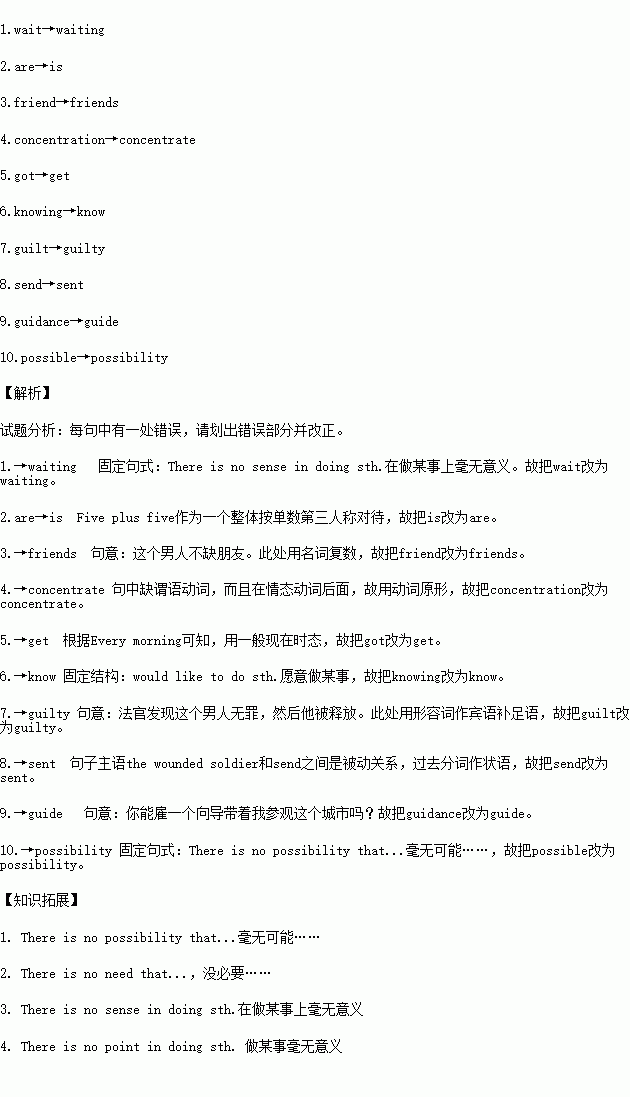题目内容
每句中有一处错误,请划出错误部分并改正。
1.There is no sense in wait three hours. ________________
2.Five plus five are ten. ______________
3.The man doesn’t lack for friend. __________
4.I must concentration my energies on my new job. ____________
5.Every morning we got stuck in a traffic jam. ___________
6.I’d like to knowing how to apply for financial aid. ____________
7.The judge found the man not guilt and then he was set free. __________
8.Send to the hospital immediately, the wounded soldier was saved. __________
9.Can you hire a guidance to show us around the city? __________
10.There is no possible that he’ll attend the party tomorrow. ___________
练习册系列答案
相关题目

